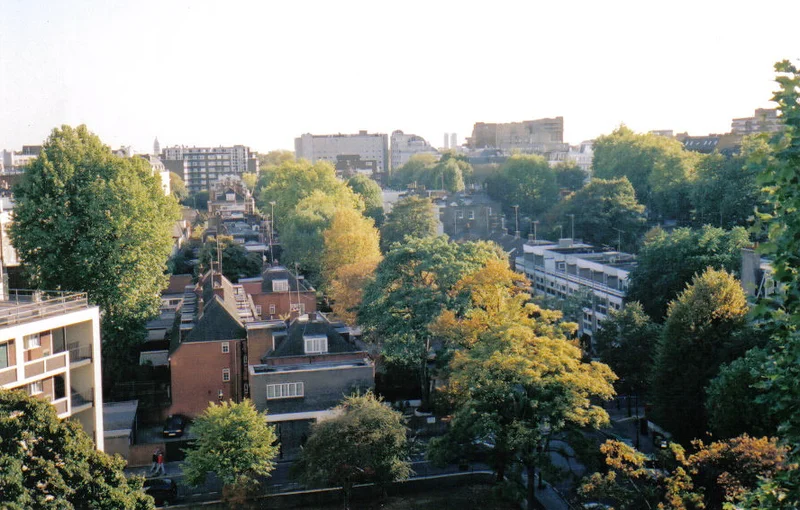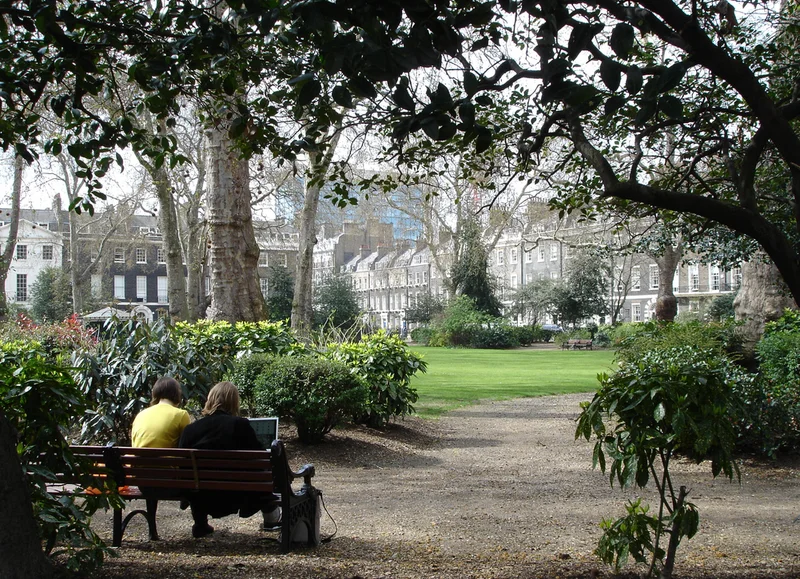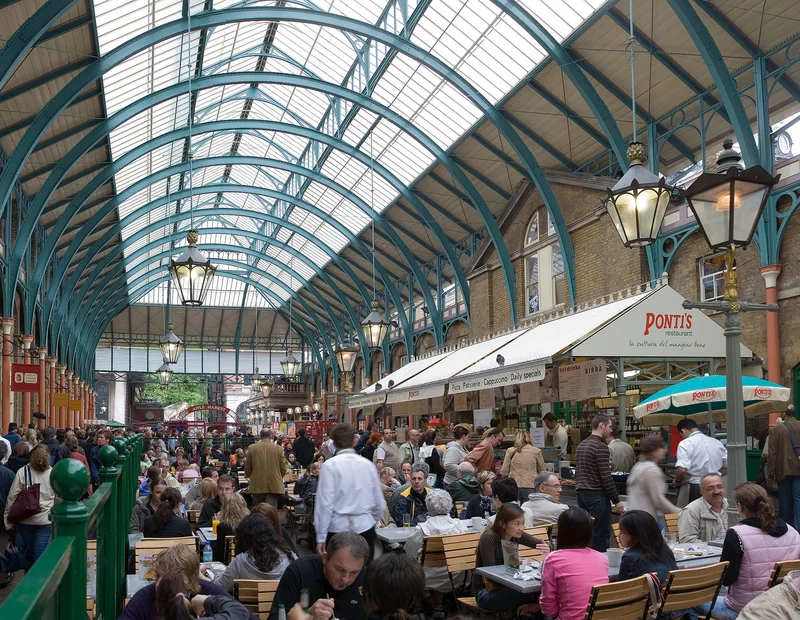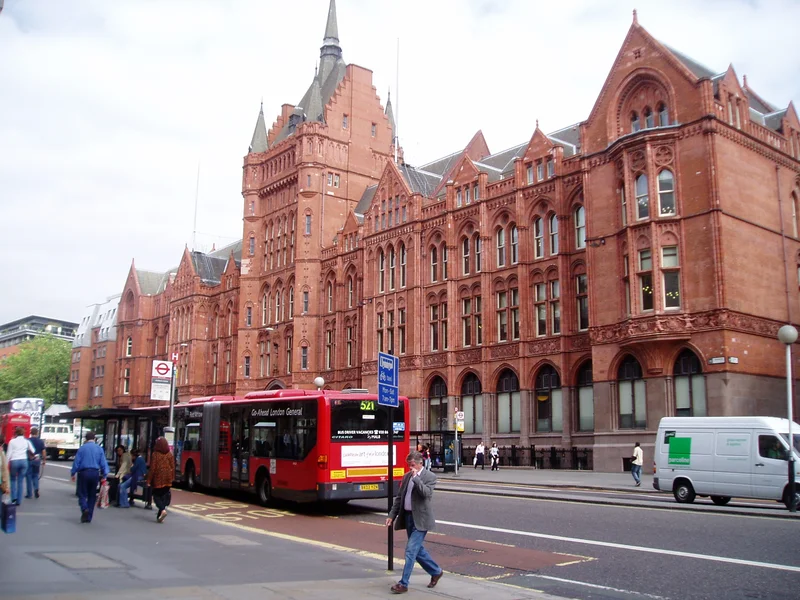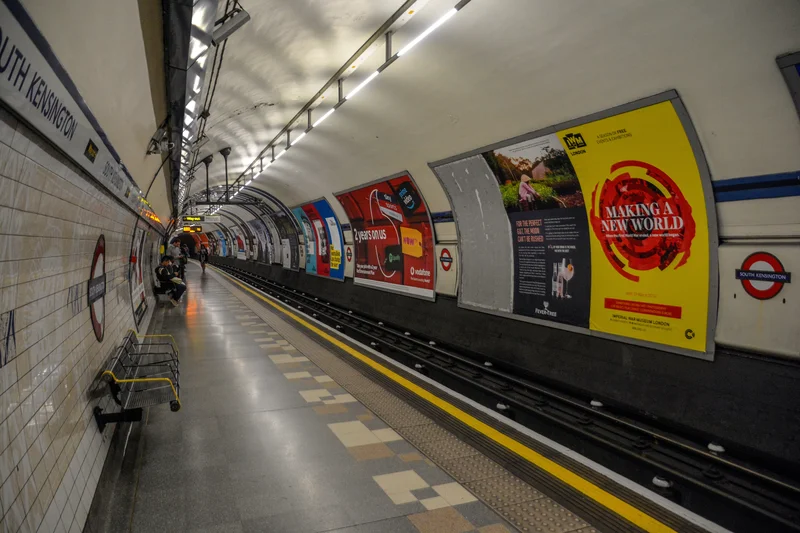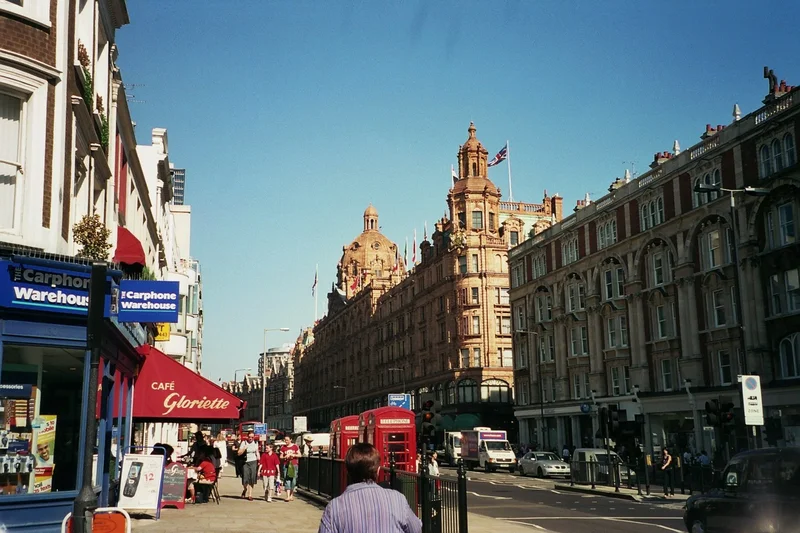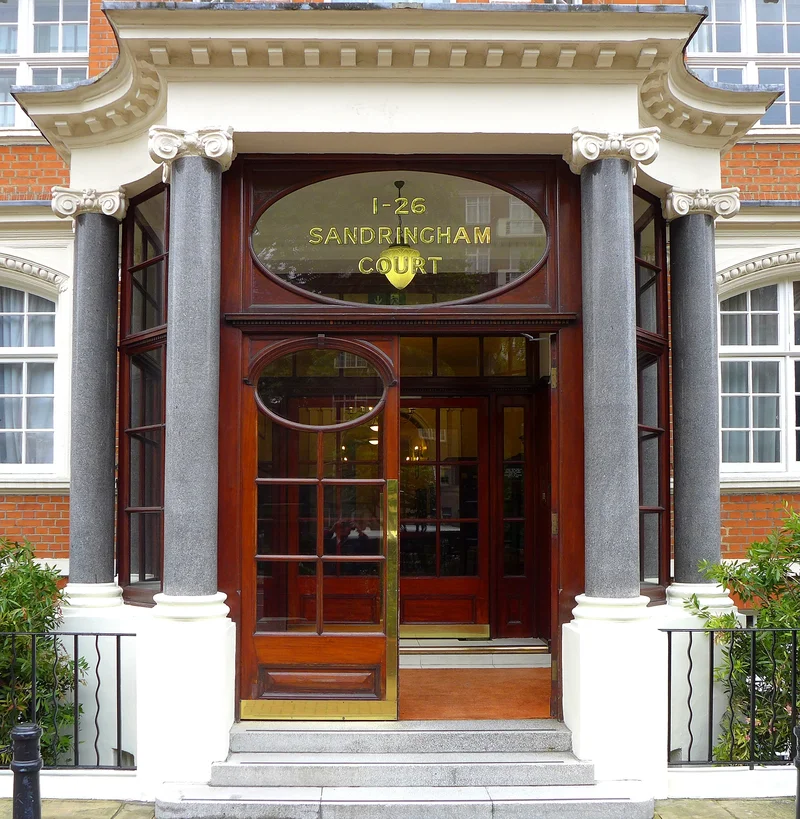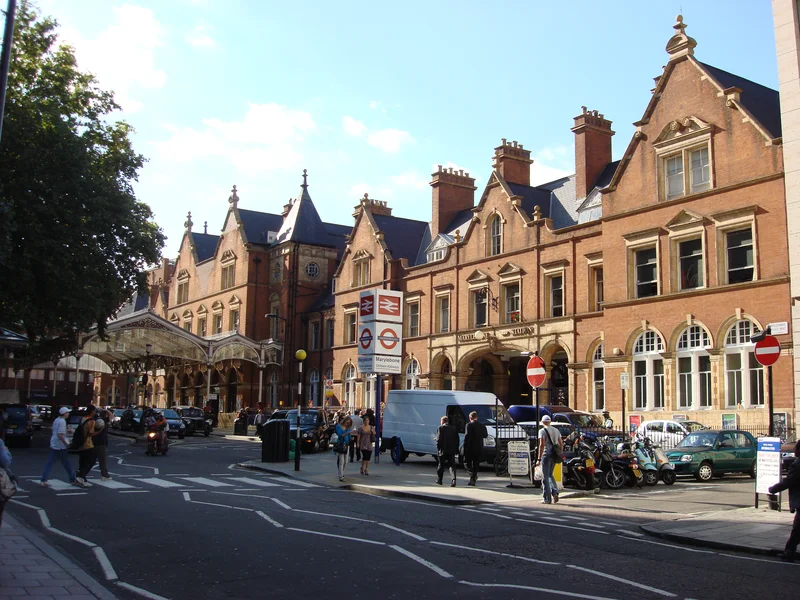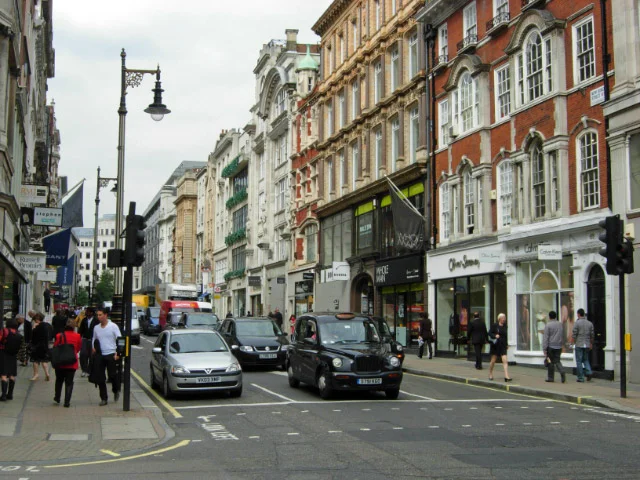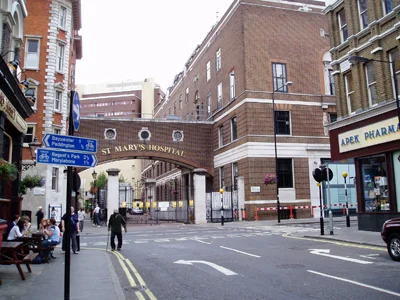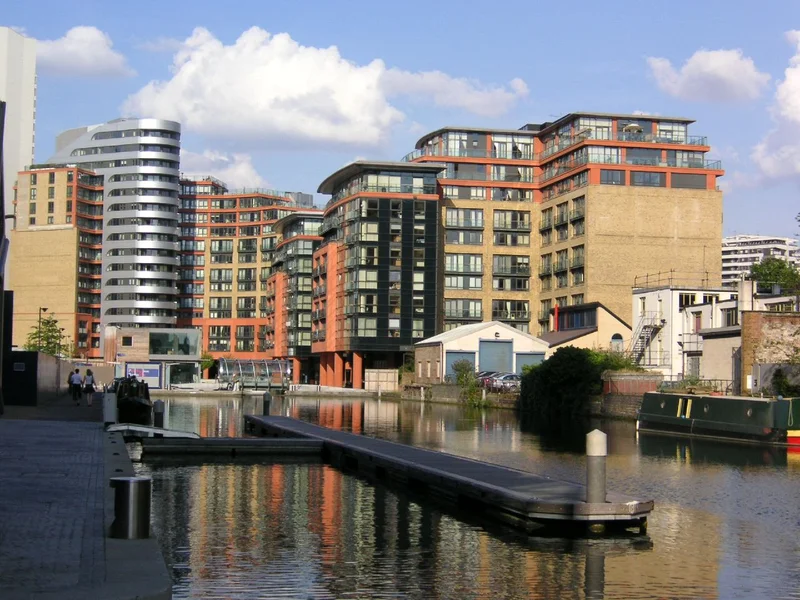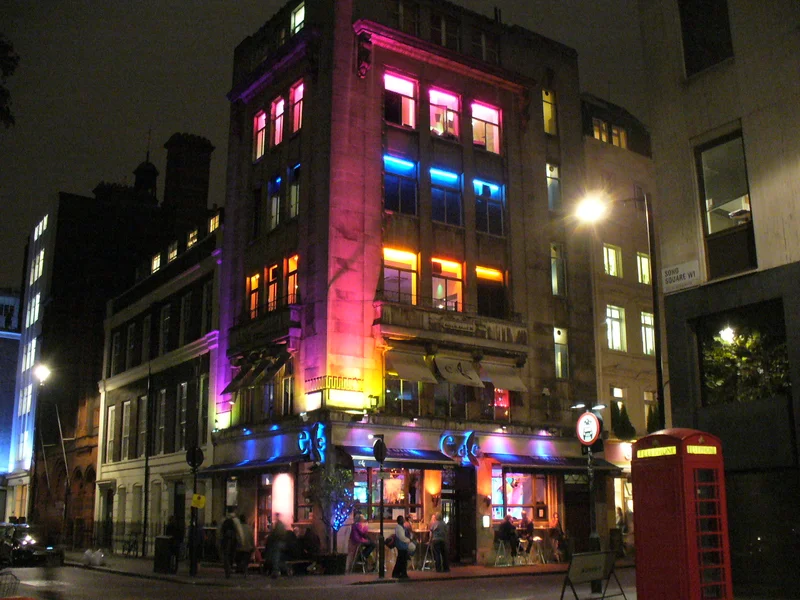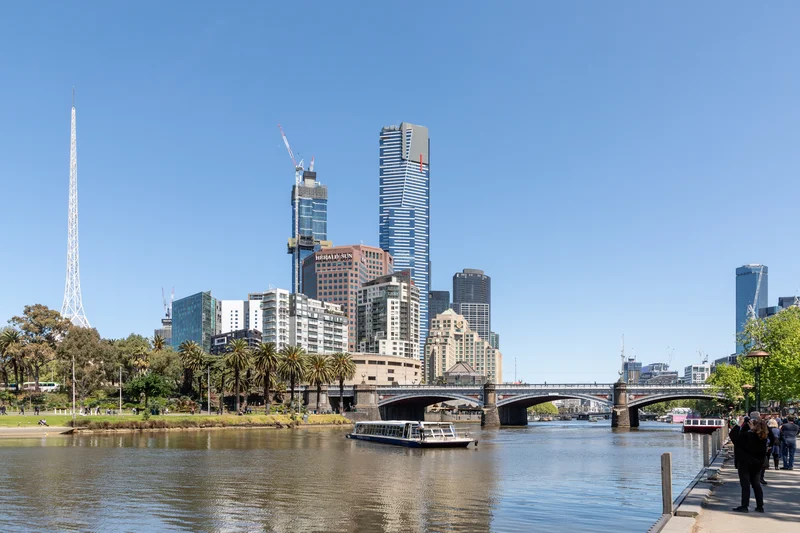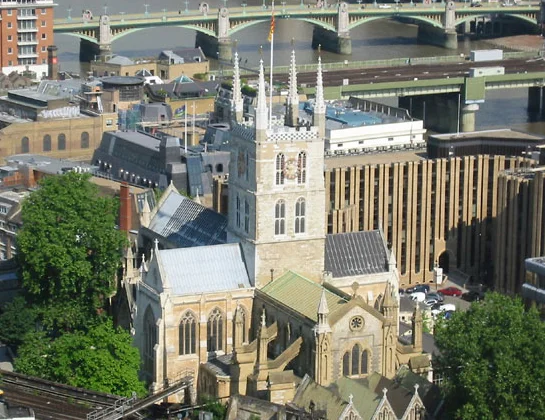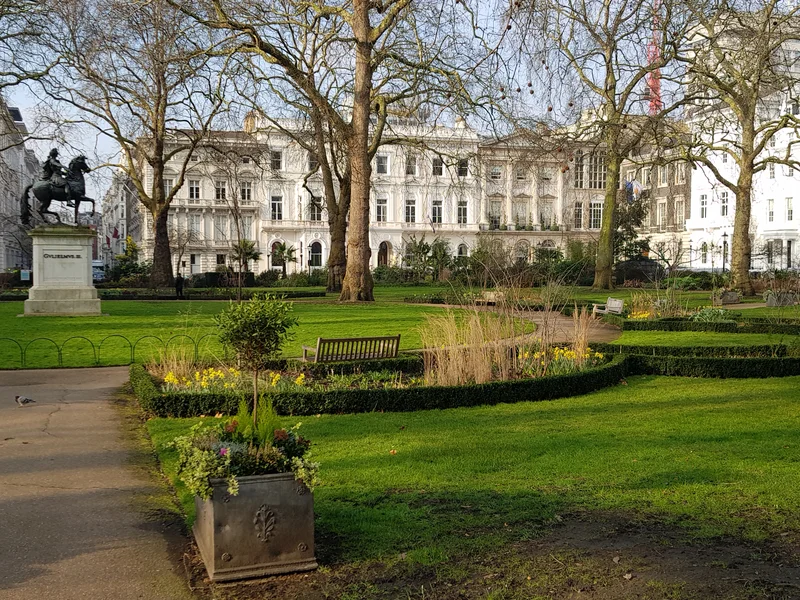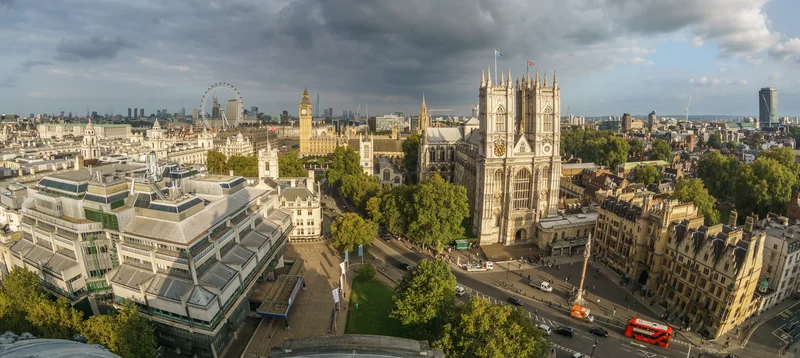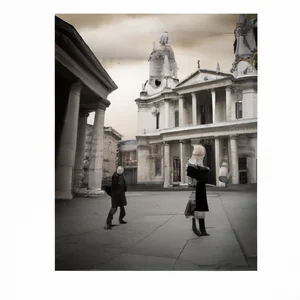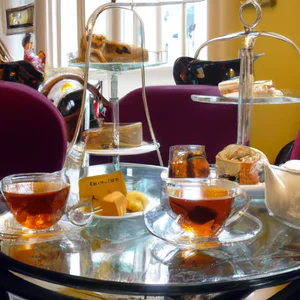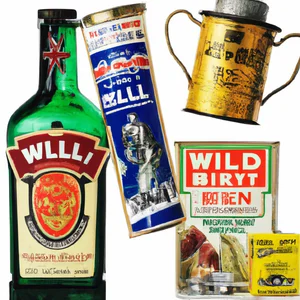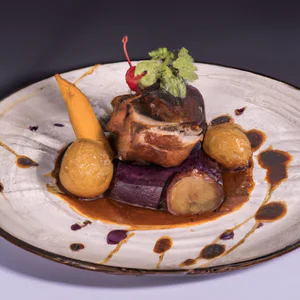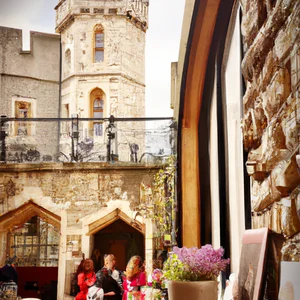Book your experience
London food halls: the new cathedrals of taste in the City
London’s food halls: it’s becoming a bit like the new temple of taste, you know? Like, every time I go there, I feel like a kid in a candy store. These places are a real feast for the palate! Imagine entering a large space, perhaps with dim lights and lots of people chatting and laughing. It’s a bit like a fair, except instead of rides there are food stalls offering lots of treats.
I don’t know about you, but I’m a guy who loves trying new things. Here, in these markets, you can find everything: from the freshest sushi to gourmet pizzas, passing through street food of all kinds. The first time I went to a food hall in London, I thought: “Wow, there’s a whole world to discover here!” I remember having a taco that was so good I almost started dancing.
And then, speaking of variety, I can’t fail to mention the fact that in these places there are more and more veggie or vegan options. It’s as if London woke up and said, “Hey, there are other streets too!” And I, as a lover of good food, can only applaud. Of course, sometimes I wonder if all this is just a passing fad or if it’s really changing the way we eat. I always say, “Maybe it’s a phase, but in the meantime, what a sight!”
In short, food halls are like small cathedrals dedicated to food, where each dish tells a story. And while you sip a good drink, while the sounds and scents mix, you feel part of something big. It’s a bit like when you went to the rides as a child and felt the adrenaline, but here the emotion is all on your plate. And who knows, maybe one day I’ll open a kiosk myself, who knows!
Discover London’s new food halls
A personal journey through the flavors of the City
When I first set foot in one of London’s new food halls, I felt like an explorer in a world of unexpected colors and scents. It was the early hours of the afternoon, and the sun filtered through the large windows of Mercato Metropolitano, a place that brings together food artisans from every corner of the world. As I savored a fresh fish taco, the vibrant music coming from a Mexican food kiosk caught my attention, and I realized that these food halls are much more than just places to eat: they are true cathedrals of taste.
An evolving gastronomic panorama
London’s food halls, such as Borough Market and Seven Dials Market, are transforming the capital’s food scene. Each of them is a microcosm of culinary cultures, where emerging chefs and established restaurateurs compete to offer dishes that tell stories. According to a recent Time Out London article, London’s food industry has seen 40% growth in recent years, with a significant increase in food halls, attracting not only locals but also tourists looking for experiences authentic.
Insider tip: Explore less crowded hours
If you want a stress-free experience, I recommend visiting these food halls during less crowded hours, such as late afternoon on weekdays. Not only will you find fewer people, but you will also have the opportunity to chat with the vendors and discover their stories. Some of them offer free samples for you to taste before you buy!
The cultural impact of food halls
These spaces are not just a meeting point for food: they also represent a crossroads of cultures. London’s food halls reflect the city’s ethnic diversity, where each dish tells a story of migration and fusion. This phenomenon has deep historical roots, dating back to the time of the British Empire, when spices and flavors from distant lands began to influence local cuisine.
Sustainability: a new face for gastronomy
Many of these food halls are also pioneers in sustainability. Some spaces, like The Kitchens, have committed to using local ingredients and minimizing food waste. By choosing to eat here, you are not only supporting small producers, but you are also contributing to a larger movement towards a more responsible gastronomic future.
Immerse yourself in the vibrant atmosphere
London’s food halls are a feast for the senses. Imagine walking between the rows of stalls, the scent of Indian curry mixing with that of Japanese sweets, while laughter and chatter fill the air. This is the beating heart of London, where every bite is an adventure.
An experience worth trying
I advise you not to miss the opportunity to visit Dinerama in Shoreditch, a lively street food space offering a variety of culinary options from around the world. Here you can enjoy innovative dishes and take part in evening events where live music makes the atmosphere even more unique.
Myths to dispel
A common misconception is that food halls are only for those looking for a quick meal. In fact, many of them offer gourmet dishes prepared by talented chefs, making every visit an opportunity to discover new culinary delights.
Final reflection
Next time you visit London, take a moment to explore these new cathedrals of taste. Which dish impressed you the most? It could be the beginning of a new culinary journey that will lead you to discover flavors and stories you never imagined.
Unique dishes: a journey into global flavors
A personal experience
I remember the day I ventured into the new food hall in Seven Dials, London. My curiosity had been captured by a flyer that promised a culinary journey across five continents. As I walked through the glass doors, the scent of spices and the chatter of people enveloped me like a warm hug. I began to explore the counters, where chefs of different nationalities performed real gastronomic works of art. Each dish told a story, a piece of the world enclosed in a bite.
A varied culinary panorama
London’s food halls, such as Mercato Metropolitano and Dinerama, offer a unique opportunity to explore unique dishes from every corner of the globe. From Japanese cuisine with its artisanal sushi, to freshly prepared Mexican tacos, to crispy Middle Eastern falafel, there are tons of options to try. Don’t forget to savor the famous Indian biryani, served in generous and aromatic portions.
To stay updated on the latest openings and gastronomic events, I recommend following pages like Eater London or Time Out London, which offer fresh news on new culinary trends.
An insider tip
If you want to discover a hidden gem, head to the Vegan Junk Food Bar food hall in Soho. Here, even vegan dishes are reinvented in a gourmet way. Their famous vegetable cheeseburger will leave you speechless, and the wide variety of dishes offers something for all tastes.
The cultural impact of gastronomy
London’s culinary diversity isn’t just about flavour; it also reflects the city’s history as a crossroads of cultures. Immigrants brought their culinary traditions, helping to transform London into one of the world’s gastronomic capitals. Every bite of the unique dishes we savor tells a story of integration and innovation.
Sustainability and responsibility
In new food halls, many vendors are committed to using local and sustainable ingredients, contributing to a greener gastronomic future. Opting for dishes prepared with fresh, organic ingredients not only supports the local economy but also reduces environmental impact.
Immerse yourself in the atmosphere
Walking between the tables, you will notice a vibrant atmosphere, marked by live music and laughter from the diners. The spaces are designed to encourage sociability, making each visit not only a dining experience, but also an opportunity to connect with people from all over the world.
An activity worth trying
For a truly memorable experience, take part in a cooking workshop in one of the food halls. Many chefs offer short courses where you can learn to prepare typical dishes and discover the secrets of their recipes. It’s a fun way to immerse yourself further in London’s food culture.
Clear up misunderstandings
A common misconception is that food halls are only for tourists. In reality, they are places frequented by locals, who consider them a meeting point to enjoy authentic dishes. Don’t be fooled, these vibrant food squares are the beating heart of London’s culinary community.
Final reflection
While enjoying a delicious plate of paella at one of the food halls, I can’t help but think about how much gastronomy can bring people together. What dish made you feel most connected to the culture of another country? Next time you are in London, let yourself be surprised by the variety of flavors and the stories that each dish has to tell.
Historic Food Halls: Tradition and Innovation
The first time I crossed the threshold of one of London’s historic food halls, the enveloping scent of exotic spices and freshly baked desserts hit me like a warm hug. It was a rainy afternoon in November and, while the rain beat incessantly on the windows, I found myself in the beating heart of Borough Market, a place that tells centuries-old stories through its stalls and its voices. Here, culinary traditions intertwine with innovation, creating a unique gastronomic experience.
A Journey through Time and Flavors
London’s historic food halls aren’t just markets; they are real living museums of gastronomy. Places like Borough Market, open since 1756, and the famous Camden Market, dating back to the 1970s, offer a mix of traditional British food and global influences. Today, these spaces are a celebration of culinary diversity, with vendors offering everything from authentic street food dishes to gourmet treats. According to an article by Time Out London, the popularity of these food halls is growing, attracting not only tourists but also residents looking for a unique dining experience.
Insider advice
If you want an authentic experience, I recommend visiting Borough Market during opening hours in the morning. Not only will you find a super fresh selection of produce, but you will also be able to watch local producers tell the story of their ingredients. A little trick: ask sellers if they have free samples; many are happy to share samples, allowing you to explore new flavors without spending anything.
Cultural and Historical Impact
London’s food halls are testament to how the city has evolved over the centuries. Originally places of commercial exchange, today they are centers of culinary innovation. The fusion of different cultures has led to dishes that combine tradition and modernity; think, for example, of classic fish and chips mixed with Indian or Japanese recipes. This gastronomic melting pot reflects not only London’s colonial history, but also its multicultural present.
Sustainability and Responsibility
In an era where sustainability is key, many historic food halls are adopting eco-friendly practices. Some vendors at Borough Market, for example, use organic and local ingredients, thus reducing their environmental impact. Participating in these culinary experiences will not only delight you, but also contribute to a more sustainable future.
Immerse yourself in the Atmosphere
Imagine walking through the aisles, with the sounds of laughter and conversation surrounding you. The warm lights of the street lamps and the smell of freshly cooked food create an almost magical atmosphere. Try closing your eyes and let yourself be carried away by the sounds and scents: it is an experience that is rooted in the heart of London.
An Activity to Try
Don’t miss a cooking workshop in one of the historic food halls! These sessions will not only teach you how to prepare delicious dishes, but will also provide you with a great opportunity to meet other cooking enthusiasts and discover the secrets behind traditional recipes.
Myths and Misconceptions
A common myth is that food halls are only for tourists; in reality, they are places loved by Londoners too. They are a meeting point where you can find high quality food at affordable prices and discover new culinary trends.
Final reflection
As you enjoy your gastronomic journey through London’s historic food halls, ask yourself: how does the food you taste tell the story of the city? Each dish is a piece of a much larger puzzle, an invitation to explore the cultural richness of this extraordinary metropolis.
Sustainability: the green face of London gastronomy
A personal experience
On a recent visit to London, I came across a small food hall in the heart of Borough Market, where a local restaurant served dishes made from organic, farm-to-table ingredients. While I savored a delicious risotto with porcini mushrooms, the owner told me about his passion for sustainability and how each dish was designed to reduce the environmental impact. That day, I understood that London gastronomy is not just a journey into flavours, but a commitment to a greener future.
Practical information
Today, London is a beacon of sustainable culinary innovation. Several food halls, such as Mercato Metropolitano and Seven Dials Market, have adopted ecological practices, from the use of compostables to separate waste collection. Many restaurateurs partner with local farmers to ensure freshness and sustainability. For more information, you can visit the Sustainable Restaurant Association website, which offers valuable resources on local initiatives.
An insider tip
A little-known tip: Look for “happy hours” at various food hall restaurants, where they often offer reduced-price dishes using ingredients that can’t be stored. It’s a great opportunity to enjoy fresh, sustainable dishes without emptying your wallet.
The cultural impact
The growing emphasis on sustainability in London dining is a response to global concerns about climate change and the overuse of resources. This movement has not only transformed the way Londoners eat, but has also influenced the cultural landscape, where the community comes together to celebrate and promote responsible food choices.
Sustainable tourism practices
When exploring London’s food halls, consider using public transport or bicycles to reduce your carbon footprint. Additionally, many restaurants offer vegetarian and vegan options, which are generally more sustainable than meat-based dishes.
Vivid atmosphere
Imagine walking among the colorful counters of the food halls, surrounded by the aromas of exotic spices and freshly cooked dishes. The laughter of customers mixes with the sound of banging pots, creating a vibrant and welcoming atmosphere. Every corner tells a story of passion and commitment towards a better future.
Activities to try
For a truly unique experience, join a sustainable cooking workshop in one of the food halls. Many of these events will not only teach you culinary techniques, but will also provide you with valuable information on the principles of sustainability in the kitchen.
Myths to dispel
A common myth is that food sustainable is always expensive and inaccessible. In fact, many food halls offer reasonably priced options, proving that eating responsibly doesn’t have to be a luxury.
Final reflection
The next time you find yourself enjoying a dish in a London food hall, ask yourself: how can I also contribute to this green revolution? Sustainability is not just a trend; it is a shared responsibility that can transform the way we live and eat.
Immersive culinary experiences not to be missed
A journey into flavors through the senses
I still remember the moment I walked through the door of a food hall in London for the first time. The air was pervaded by a mix of aromas that stimulated my every sense: the smoky scent of grilled meat, the sweet and enveloping smell of freshly baked bread and the fresh fragrances of aromatic herbs. As I ventured among the different stalls, I felt like an explorer in a culinary bazaar, ready to discover dishes that tell stories of different cultures.
The best food halls in London
London is an ever-evolving city, and its food halls are no exception. Places like Mercato Metropolitano and Borough Market offer not just food, but real culinary experiences. Here, you can watch chef demonstrations and take part in cooking workshops, learning from the best. Recently, I discovered that Dinerama in Shoreditch offers a weekly event where up-and-coming chefs present innovative dishes. According to an article in the Evening Standard, these events have attracted an ever-growing crowd of food enthusiasts.
An insider tip
If you want a truly unique dining experience, look for “pop-ups” by local chefs in food halls. Often, these events are not advertised and are only accessible to those seeking gastronomic adventures. The Street Feast is a great example; check their social pages to discover the secret events and culinary surprises they organize.
The cultural context
London’s food halls are not only places of consumption, but also spaces of cultural integration. They represent a melting pot of culinary traditions: from Indian dishes to Mexican tacos, every bite is a tribute to the immigration stories that have shaped the city. These spaces celebrate diversity, making gastronomy an art form that unites people.
Sustainability and responsibility
Many of these places are embracing sustainable tourism practices. For example, the Metropolitan Market is committed to reducing food waste through recycling initiatives and collaborations with local producers. Choosing to eat here means supporting a more responsible and environmentally friendly business model.
Immerse yourself in the experience
Enjoy an immersive culinary experience by taking part in a cooking workshop at the Borough Market food hall. Here, you can learn to prepare traditional English dishes, such as fish and chips, directly from the masters of the industry. Not only will you take home a new skill, but you will also have an unforgettable memory of your food adventure.
Debunking the myths
A common misconception about food halls is that they are expensive places reserved for an elite clientele. In fact, many kiosks and stalls offer delicious dishes at affordable prices, allowing everyone to explore the world of London gastronomy without emptying their wallet.
A final reflection
Next time you visit London, I invite you to consider food halls not just as places to eat, but as cultural experiences that enrich your trip. What unique dish would you like to try and what story do you expect to discover through food? In an increasingly connected world, food becomes a universal language capable of uniting cultures and people.
Food markets: the true soul of London
An experience that remains in the heart
I remember my first visit to Borough Market: the enveloping scent of freshly baked bread, the spicy notes of Indian curries and the laughter of the sellers who attract passers-by. It was a Saturday morning and the market was pulsating with life, with people of all ages mingling among the colorful stalls. In that moment, I understood that London’s food markets are not just places to buy food, but real cultural centers, where every taste tells a story.
Practical information on London markets
London boasts a myriad of food markets, each with its own unique personality. Among the most renowned are:
- Borough Market: one of the oldest and most iconic, it offers a selection of fresh products, artisan specialties and street food from all over the world.
- Camden Market: famous for its alternative atmosphere, here you can find ethnic, vegan dishes and many street food options.
- Brick Lane Market: The heart of Bangladeshi culture, where curry is a must and food offerings range from classic bagels to fusion dishes.
For updates on the markets, I recommend you visit the official London website (Visit London) or the social pages of the markets themselves, where events and times are announced.
An insider tip
A little-known tip for those visiting Borough Market is to look for the “Pork Bun” at Bao, a small kiosk that serves one of the best pork buns in the city. Often overlooked, this gastronomic gem is a must for food lovers.
The cultural impact of markets
London’s food markets are a microcosm of the city’s cultural diversity. With the arrival of immigrants from all over the world, each market has seen the influence of different flavors and culinary traditions. This cultural exchange has not only enriched the gastronomic offer, but has also contributed to creating a more cohesive and inclusive community.
Sustainability and responsibility
Many London markets are embracing sustainable practices, such as using locally sourced ingredients and reducing food waste. For example, Borough Market partners with local farmers to ensure freshness and sustainability. Choosing to purchase food from these markets is one way to support the local economy and promote environmental sustainability.
A vibrant atmosphere
Walking among the stalls, let yourself be enveloped by the bright colors and festive sounds. Street performers, musicians and cooking demonstrations create a vibrant atmosphere that makes each visit unique. Imagine enjoying a delicious, freshly fried falafel while listening to a group of musicians playing traditional tunes: it’s an experience that will make you feel part of the community.
An activity not to be missed
Don’t miss the opportunity to take part in a guided food tour, where you can taste different specialties and discover the history of each market. These tours often include tastings and anecdotes that enrich the experience.
Myths to dispel
A common myth is that food markets are only for tourists. In fact, they are also frequented by Londoners, who consider them an integral part of their weekly routine. The variety and freshness of the products make the markets points of reference for those looking for quality food.
Final reflections
Next time you’re in London, ask yourself: “What’s the flavor I want to discover today?” Food markets don’t just offer food, but a journey into the flavors and stories of an ever-evolving city. Which story will you take home?
Tips for enjoying dishes from emerging chefs
One of my most memorable experiences in London was during a rainy evening in Brixton, where I discovered a small pop-up dedicated to young, emerging chefs. As the rain drummed on the tin roof, I stepped inside a vibrant and welcoming environment, where the scent of spices and creative dishes mixed with the infectious energy of the crowd. This is London: a melting pot of cultures and culinary talents, where every dish tells a unique story.
Discover hidden talents
With the explosion of food halls and food markets, London has become a real stage for emerging chefs bringing innovation and freshness to the food scene. Places like Mercato Metropolitano and Boxpark have become talent incubators, allowing chefs of different origins to present their creations to a curious audience. Here, you can enjoy everything from fusion sushi to reinterpreted traditional dishes, all in a casual and welcoming atmosphere.
An insider tip
If you really want to savor the authenticity of these young chefs’ creations, look for events like “Street Feast” held in various neighborhoods of London. These events not only offer a wide range of dishes, but are also an opportunity to interact directly with the chefs, discover their inspirations and maybe even receive some secret recipes.
The cultural impact
The growing popularity of emerging chefs reflects a wider trend in London’s culinary culture: an openness to the new and innovative. These young talents often draw on their cultural roots, mixing traditional techniques with modern ingredients, thus creating a sort of fusion that celebrates the diversity of the city. This isn’t just food; it is a reflection of London’s immigration stories and rich food history.
Sustainability and responsibility
Many of these emerging chefs are also committed to sustainability. They use local and seasonal ingredients, helping to reduce the environmental impact of their work. Choosing to eat at these food halls not only supports small business owners, but also promotes more responsible practices in the food industry.
An experience not to be missed
For an unmissable activity, I recommend taking part in a culinary workshop in one of the many spaces dedicated to gastronomy in London, such as the London Cooking Project. Here, you can learn from top up-and-coming chefs, while enjoying a hands-on experience that will not only teach you how to cook, but also connect you with the local culinary community.
Myths and misconceptions
A common misconception is that dishes created by up-and-coming chefs are always expensive or difficult to find. In fact, many of these talents offer dishes at affordable prices, making gourmet cuisine accessible to all. Don’t be fooled by prejudices; an evening in a food hall can be an incredible gastronomic experience without emptying your wallet.
In conclusion, next time you are in London, take the time to explore the creations of these emerging chefs. I invite you to reflect: what unique dish might you discover that would change your perception of London cuisine?
The culture of food: stories of immigration and fusion
When I first entered one of London’s food halls, an intoxicating aroma of spices and fresh foods greeted me like a familiar hug. As I moved through the various stalls, I met a third-generation chef, whose grandparents had immigrated from Morocco. His specialty? A couscous that mixed traditional ingredients with a modern twist, such as the addition of exotic fruit. This is just one example of how London’s food halls are true crossroads of cultures, where each dish tells a story of migrants who brought their own culinary traditions with them.
A melting pot of flavors
London’s food halls are a living reflection of the city’s cultural diversity. Places like Mercato Metropolitano and Borough Market not only offer a wide range of dishes from different world cuisines, but also celebrate the stories of the chefs who prepare them. Each bite is a journey through the traditions of distant countries, an opportunity to discover how cuisine can unite people of different cultures. Fusion is not just a trend, it is a way to honor and reinterpret traditional recipes, making them accessible to everyone.
Insider tip
If you want an authentic experience, visit the food halls on weekdays. It is in these moments that you can chat with the chefs and listen to their stories, discovering the secrets of their recipes. A little trick? Many chefs are willing to share their passion and sometimes offer free tastings if you are curious and interested.
The cultural impact
The history of food in London is intrinsically linked to immigration. Each wave of migrants brought new ingredients and culinary techniques, enriching the gastronomic landscape. Food halls are not just spaces for eating, but also meeting places where cultural heritage is celebrated, helping to build stronger, more cohesive communities.
Sustainability and responsibility
Many of the vendors in the food halls are committed to sustainable practices, using local and seasonal ingredients. This not only reduces environmental impact, but also supports the local economy. Opting for dishes that use fresh, local produce is one way to enjoy London cuisine responsibly.
An immersive experience
I recommend you take part in one of the numerous thematic evenings organized in these food halls, where you can savor unique dishes accompanied by live music and dance shows. These events not only offer a great opportunity to enjoy delicious food, but also to fully immerse yourself in the city’s food culture.
Final reflections
London’s food culture is an ever-evolving mosaic, and food halls are its beating heart. In an age where human interactions can seem superficial, these spaces offer authentic connection through food. Have you ever wondered how a simple dish can tell the story of a life? Next time you visit a food hall, take a moment to reflect on the story behind each bite.
Secret food halls: where locals love to go
A Saturday afternoon discovering London’s culinary secrets
Imagine wandering the streets of London, when suddenly you come across a narrow, dimly lit passage. Curious, you decide to follow him and, to your surprise, you find yourself in a small food hall that seems to exist outside of time. This is exactly what happened to me one Saturday afternoon, when I discovered one of the secret food halls that Londoners love. The atmosphere was intimate, and the scent of fresh food and exotic spices filled the air, creating a party atmosphere that only locals know.
Discover the hidden side of London gastronomy
London’s secret food halls aren’t just places to eat; they are culinary experiences that tell stories. Often tucked away in off-the-beaten-path corners, these hidden gems offer unique dishes prepared by emerging chefs, inspired by family recipes or gastronomic traditions from around the world. An example is Mercato Metropolitano, where you can enjoy an extraordinary variety of dishes, from Japanese ramen to Neapolitan pizza, all in a welcoming and lively environment.
An insider tip
If you really want to immerse yourself in the secrets of London’s food halls, try visiting during less crowded hours, like Tuesday or Wednesday afternoons. Not only will you have a chance to chat with the vendors, but you may also discover special dishes that aren’t available on weekends, when the crowds are overwhelming.
The cultural impact of secret food halls
These spaces not only celebrate London’s culinary diversity, but they also represent a refuge for immigrant communities who bring their culinary traditions to the city. The secret food halls are a microcosm of multicultural London, where each dish tells a story of travel, hope and integration.
Sustainability and responsible practices
Many of these food halls are also committed to sustainability, using local ingredients and responsible cooking practices. The Plant in Hackney, for example, is a great choice for those looking for a completely plant-based option, without compromising on taste. Here, you can enjoy dishes prepared with fresh, seasonal ingredients, thus contributing to a more sustainable gastronomy.
An experience not to be missed
If you decide to explore these secret food halls, I recommend trying a guided food tour. These tours will take you to lesser-known places, where you can taste authentic dishes and discover fascinating stories behind each stand. A perfect way to get in touch with the local culture!
Myths to dispel
A common misconception is that secret food halls are expensive and reserved for a small elite. In fact, many of these places offer affordable dishes, perfect for anyone who wants to enjoy a delicious meal without emptying their wallet.
A final reflection
After visiting these food halls, I can’t help but wonder: how often do we miss the opportunity to explore the hidden side of the cities we visit? London, with its secret food halls, invites us to discover not only food, but also the stories, cultures and communities that make it so special. So next time you’re in town, why not get off the beaten track and take a culinary journey to lesser-known places?
Food tours: an authentic experience in the City
A chance encounter between flavors
On a recent visit to London, while exploring the winding streets of Soho, I found myself in a small restaurant that I would never have noticed if it weren’t for the enveloping scent of spices wafting through the air. There, I had the opportunity to participate in a local-led food tour, which turned my dining experience into a fascinating journey through the different cultures that make up this vibrant city. It was an unforgettable afternoon, which opened my eyes and my palate to flavors I never imagined I would taste.
Practical information on food tours
London offers a variety of food tours, each with its own focus and style. From those dedicated to ethnic cuisine, such as the Brick Lane tour which explores the Bangladeshi community, to those which focus on traditional British dishes, such as the classic fish and chips. Tours such as “Eating London” and “London Food Tours” are great starting points for those looking for an authentic experience. Prices vary, but you can find options to suit all budgets, starting from around £50 per person. Remember to book in advance, especially on weekends.
An insider tip
A little-known tip is to ask your guide to take you to a place that is not on the official tour list. Often, the best dishes are found in restaurants that tourists tend to ignore. These places, often family-run, can offer a much more authentic and intimate dining experience.
The cultural role of food tours
London food tours aren’t just a way to enjoy delicious food; they are also a window into the history and culture of the city. London is a melting pot of cultures, and every dish tells a story of immigration, innovation and fusion. Through food, one can trace the migratory paths and influences that have shaped the city over the centuries.
Sustainable tourism practices
Many food tours are embracing sustainable practices, such as using local and organic ingredients. Some operators work with local producers and markets to ensure their food comes from responsible sources. Choosing tours that emphasize sustainability not only enriches your experience, but also contributes to more responsible tourism.
An opportunity not to be missed
During your tour, be sure to try the “Sunday Roast” in a traditional tavern. This experience will allow you to immerse yourself in British culture and enjoy a key meal that has deep roots in local history.
Myths and misconceptions
A common misconception is that London cuisine is dull and characterless. In fact, London’s culinary diversity is one of its most fascinating features. Each neighborhood offers unique flavors, and food tours are an excellent way to dispel this myth.
A personal reflection
After having lived this experience, I realized how much food can be a vehicle for connection and understanding between different cultures. What is the dish that most impressed you during your travels? Be curious and let the flavors guide you, because every bite tells a story, and London has many stories to tell.

 Architecture and Design
Architecture and Design Cities and Regions
Cities and Regions Culture and History
Culture and History Events and Festivals
Events and Festivals Fashion and Shopping
Fashion and Shopping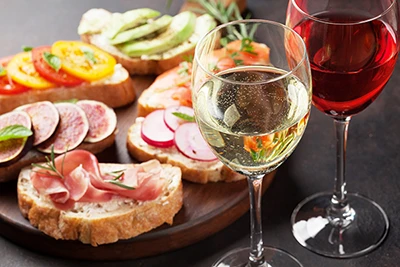 Food and Wine
Food and Wine Nature and Adventure
Nature and Adventure Unique Experiences
Unique Experiences